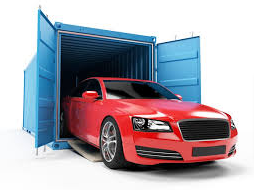Canada’s diverse automotive market attracts car enthusiasts and buyers who seek unique vehicles from other countries, especially from the U.S. Importing a vehicle into Canada can be an exciting endeavor, but it involves navigating various rules, regulations, and procedures. For a seamless experience, partnering with a reputable vehicle import company is essential. This guide will walk you through the process of importing an auto to Canada and highlight how a professional vehicle import company can make the process easier.
Why Import an Auto to Canada?
Many buyers choose to import vehicles to Canada for several reasons, such as:
- Access to rare or classic vehicles: Some models may not be available in the Canadian market.
- Lower costs: Even after factoring in import fees and duties, buying from another country, particularly the U.S., can still be cost-effective.
- Preference for specific features: Some vehicles may offer unique trims, technology, or features unavailable in Canadian versions.
However, the process is not as simple as purchasing the vehicle and driving it across the border. Importing a car into Canada requires compliance with federal and provincial regulations, which can be complex and time-consuming.
Steps to Importing a Vehicle to Canada
1. Determine Vehicle Eligibility
Before starting the import process, it’s crucial to determine if the vehicle you want to import is allowed in Canada. Canada has strict regulations concerning the import of vehicles, and the Registrar of Imported Vehicles (RIV) oversees this.
- Age and condition of the vehicle: Vehicles under 15 years old must meet Canadian safety standards.
- Modifications: Some imported cars may need modifications to meet local standards, including alterations to emissions and safety features.
- Manufacturer clearance: Vehicles must have clearance from the original manufacturer indicating they meet Canadian regulations.
Consult the RIV website to check if your desired vehicle model is eligible for import.
2. Choose a Vehicle Import Company
Once you’ve confirmed that the vehicle is eligible for import, the next step is selecting a reliable vehicle import company. These companies handle all aspects of the import process, including documentation, logistics, and ensuring compliance with Canadian regulations. Here’s what to look for when choosing a vehicle import company:
- Experience: Look for a company that specializes in vehicle imports to Canada, particularly from your country of purchase.
- Services offered: Ensure they provide end-to-end service, including transportation, documentation, and inspection.
- Reputation: Check online reviews, testimonials, and ask for referrals.
- Licensing: Verify that the company is licensed and registered with the appropriate Canadian and international authorities.
3. Understand the Costs
Importing a vehicle comes with several costs that need to be considered before making a purchase. These include:
- Purchase price: This is the cost of the vehicle itself from the country of origin.
- Duties and taxes: Expect to pay duties on your vehicle, typically 6.1% of its value, plus Goods and Services Tax (GST) and provincial taxes.
- Transport fees: This covers the shipping of the vehicle from its origin to Canada.
- Inspection fees: You may need to pay for inspections to ensure the vehicle meets Canadian safety and emissions standards.
- Modifications: Some vehicles may require modifications, which will incur additional costs.
- Registration and licensing: After your vehicle is imported, it must be registered and licensed in the province or territory where you plan to drive it.
A trusted vehicle import company will provide an estimate of these costs upfront and help you budget accordingly.
4. Arrange Transportation
Your vehicle needs to be transported safely and securely to Canada. You can either drive the vehicle across the border yourself or hire a company to ship it.
- Land transport: This is typically the most common and affordable option, particularly for U.S. imports.
- Sea freight: If you’re importing from overseas, your vehicle will need to be shipped by sea, adding additional logistics.
- Insurance: Ensure your vehicle is insured during transportation to cover any damages or accidents that may occur during shipping.
A reputable vehicle import company will coordinate transportation, handling all the necessary logistics, ensuring your vehicle arrives safely in Canada.
5. Customs Clearance
Once your vehicle arrives in Canada, it must clear Canadian customs. You’ll need the following documents for this step:
- Bill of sale or invoice proving ownership.
- Title or registration from the country of origin.
- Recall clearance letter from the manufacturer.
- Form 1 (if required by RIV), which is a declaration for importing a vehicle into Canada.
Your vehicle import company will manage customs clearance and ensure all documents are in order. Be prepared to pay duties and taxes at this stage, along with any necessary inspection fees.
6. Vehicle Inspection and Modifications
After clearing customs, your vehicle may need to undergo inspections to ensure it complies with Canadian safety and emissions standards. The inspection covers:
- Safety features: Seatbelts, airbags, lighting, and more.
- Emissions standards: Ensuring the vehicle meets provincial and federal emissions requirements.
If the vehicle fails the inspection, you’ll need to make modifications before registering it. A skilled vehicle import company will assist you in completing any required modifications and guide you through the inspection process.
7. Register Your Vehicle
Once your vehicle has passed all inspections and modifications, you can proceed with registering it in your province. You’ll need to provide proof of the following:
- Ownership: Present your bill of sale and any transfer documents.
- Inspection clearance: Proof that the vehicle passed all necessary inspections.
- Insurance: Vehicle insurance is mandatory in all provinces.
At this point, you’ll receive a Canadian registration and license plates, and your vehicle will be fully legal for the road.
The Role of a Vehicle Import Company
A reliable vehicle import company is key to a successful vehicle importation process. Here are some benefits of using such a service:
- Expertise: They understand the nuances of Canadian regulations, ensuring your vehicle complies with safety and emissions standards.
- Hassle-free process: They handle paperwork, logistics, and inspections, saving you time and stress.
- Cost-efficiency: A professional import company can help you avoid costly mistakes and delays by ensuring that all steps are completed correctly.
- Timely delivery: Coordinating transportation and customs clearance efficiently means your vehicle arrives on time, ready to drive.
By choosing the right import company, you ensure the entire process, from purchasing to registration, is smooth and hassle-free.
Conclusion
Importing a vehicle into Canada is a complex process involving several steps, but with the help of a professional vehicle import company, it can be a straightforward and rewarding experience. From determining vehicle eligibility to clearing customs, a reliable import company will guide you every step of the way. Whether you’re seeking a rare vehicle or simply want a more cost-effective option, importing a car into Canada is made easier with the right support.



